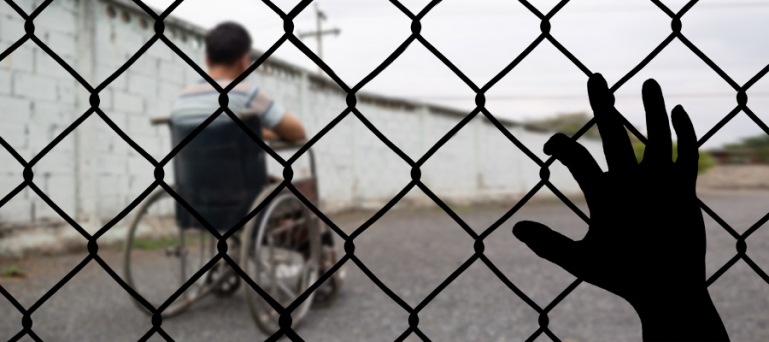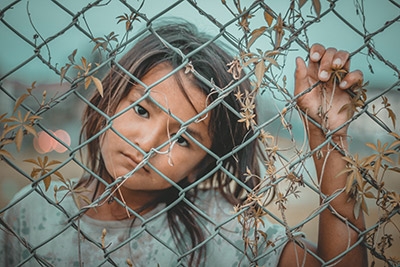Protecting the rights of immigration detainees with disabilities

Protecting the rights of immigration detainees with disabilities

DRC opposes cruel and inhumane immigration policies, including the separation and/or indefinite detention of immigrant families. These policies are especially harmful to immigrants with disabilities. We are conducting monitoring programs at these facilities.
DRC opposes cruel and inhumane immigration policies, including the separation and/or indefinite detention of immigrant families. These policies are especially harmful to immigrants with disabilities. We are conducting monitoring programs at these facilities.
Catalina is an immigrant with mental health disabilities who is seeking asylum in the United States. She fled her country due to violence and sexual abuse at the hands of her partner. Men raped her multiple times while she traveled to the U.S. looking for a safe haven. Border Patrol placed Catalina in an immigration detention center after she crossed the border. While in detention, Catalina developed PTSD and severe depression. The facility repeatedly placed her in a suicide-watch cell – a small, empty room with no windows.
“Immigration detention policies and the harsh conditions inside these jail-like facilities are enormously harmful to immigrants with disabilities,” said Pilar Gonzalez, DRC attorney.
DRC investigated conditions in two of the largest immigration detention facilities in California – a privately operated facility in Adelanto and the Orange County Jail. We found these centers ill equipped and unable to meet the medical and mental health needs of detainees.
 In another effort, several DRC units are monitoring nine youth immigrant shelters and facilities. The monitoring is in response to the newly enforced U.S. federal immigration “zero tolerance” policy implemented by the federal government in 2017. The policy separated undocumented immigrant children from their parents. DRC joined with other state protection and advocacy agencies under the leadership of the National Disability Rights Network. In the beginning, DRC was denied access from the Office of Refugee Resettlement (ORR) and the federal Department of Health and Human Services (HHS). Eventually, all protection and advocacy agencies were granted full monitoring access to these shelters and facilities housing both separated and unaccompanied children immigrants.
In another effort, several DRC units are monitoring nine youth immigrant shelters and facilities. The monitoring is in response to the newly enforced U.S. federal immigration “zero tolerance” policy implemented by the federal government in 2017. The policy separated undocumented immigrant children from their parents. DRC joined with other state protection and advocacy agencies under the leadership of the National Disability Rights Network. In the beginning, DRC was denied access from the Office of Refugee Resettlement (ORR) and the federal Department of Health and Human Services (HHS). Eventually, all protection and advocacy agencies were granted full monitoring access to these shelters and facilities housing both separated and unaccompanied children immigrants.
We interviewed 180 children at the nine centers and to date, we found troubling practices, such as superficial and hasty social, psychological, developmental, and educational assessments for these children experiencing significant trauma. At most shelters, the level of education provided is inadequate.
We also discovered that children who have “behavioral issues” or demonstrate “significant needs” are turned away and sent to other facilities or are “stepped up” to settings that are more restrictive. In addition, we found children didn’t receive a notice or a hearing before being moved to a more restrictive setting. This work is ongoing not just at DRC but across the Network.




